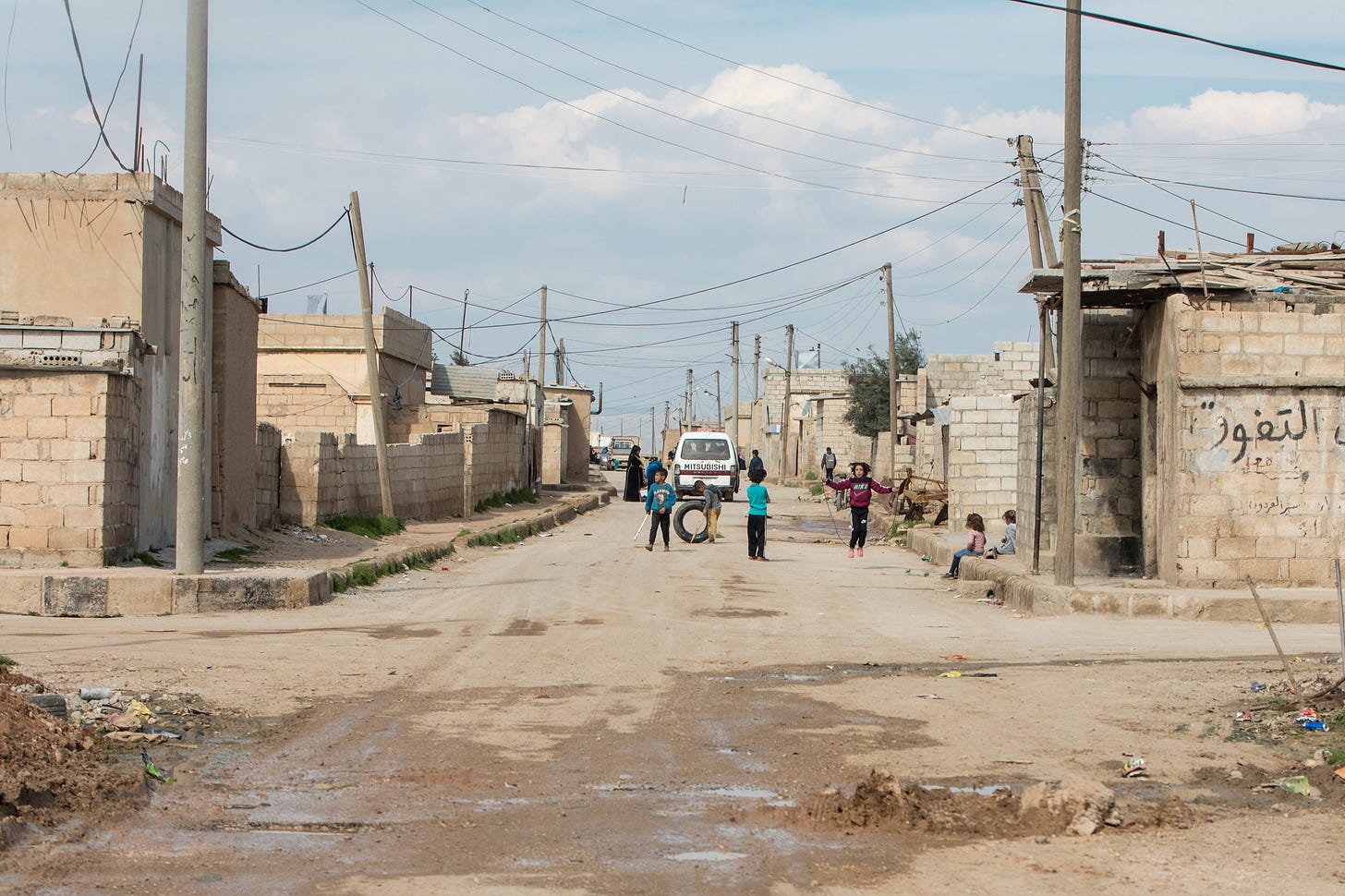Turkey's maximum pressure campaign is wrecking Syrian Kurdish society
Drone strikes, water shortages, and other forms of economic siege are making northeast Syrians' lives miserable.
Northeast Syria has been off most Americans’ radar since the October 2019 crisis, and U.S. politicians have taken an “out of sight, out of mind” attitude. But the threat of a Turkish invasion has not subsided. Even more importantly, Turkey has continued to apply pressure to the region short of war, in ways that seem designed to cause a social collapse.
A combination of Turkish dams and Turkish-backed rebel groups have wreaked havoc on water infrastructure, Turkish diplomacy has kept the border with Iraqi Kurdistan largely closed to trade, and Turkish drones assassinate people involved in the Kurdish-led revolution, both military officers and low-level civilian party bureaucrats.
My colleague Meghan Bodette published an important report on the Turkish-Kurdish conflict with the New Lines Institute last week. It’s one of the articles I’ve seen that puts all the parts of Turkey’s pressure campaign in Syria together. As the research director at the Kurdish Peace Institute — where I’m also a non-resident fellow — Meghan has amassed some impressive sources and visited the region several times.
The report suggests that the Northeast Syrian crisis cannot be resolved without a solution to Turkey’s internal “Kurdish question.” And it argues that there are opportunities for outside powers to push for diplomacy, given Turkey’s upcoming elections, the recent earthquake, and other factors. I really recommend reading the whole thing.
But I also want to highlight one part that was particularly striking, and drives home the human cost of the drone campaign:
These targeted killings make it harder for the [Syrian Democratic Forces] to recruit women into its ranks and degrade gender parity in civilian governance and civil society. Members of Kongreya Star, the umbrella organization for the autonomously organized women’s movement in Kurdish regions of northeastern Syria, and the Zenobia Women’s Assembly, an equivalent organization in Arab-majority regions of northeastern Syria told the author that the Turkish campaign of strikes has limited their ability to move freely, especially in border areas. The campaign also has limited the women’s participation in public gatherings and women’s willingness to meet with them. Some women are faced with increased pressure from their families not to participate in politics because of the strikes. Mothers reportedly expressed fear that their participation might endanger the lives of their children, as it is common for meetings to take place in private homes and is acceptable for women to bring young children to their offices with them; some [Autonomous Administration of North East Syria] institutions offer on-site childcare.
The success of the Kurdish-led movement is also its greatest vulnerability. Since the revolution mobilizes normal people with families, then those people can also be terrorized more easily than seasoned militants. People in the region have also told me that the presence of Bayraktar drones has caused general panic among the population, and deterred them from driving civilian cars on civilian roads.
This stuff is not sexy enough to warrant news coverage, but it seriously overturns people’s lives and is driving the region towards more violence. That is how modern states get what they want most effectively — not by marching troops across the border, but by forcing society to collapse and presenting themselves as the solution.
Header image: Syrian children play in their neighborhood in Al-Hasakah Province, Syria, Feb. 13, 2019. (U.S. Army photo by Staff Sgt. Ray Boyington)



